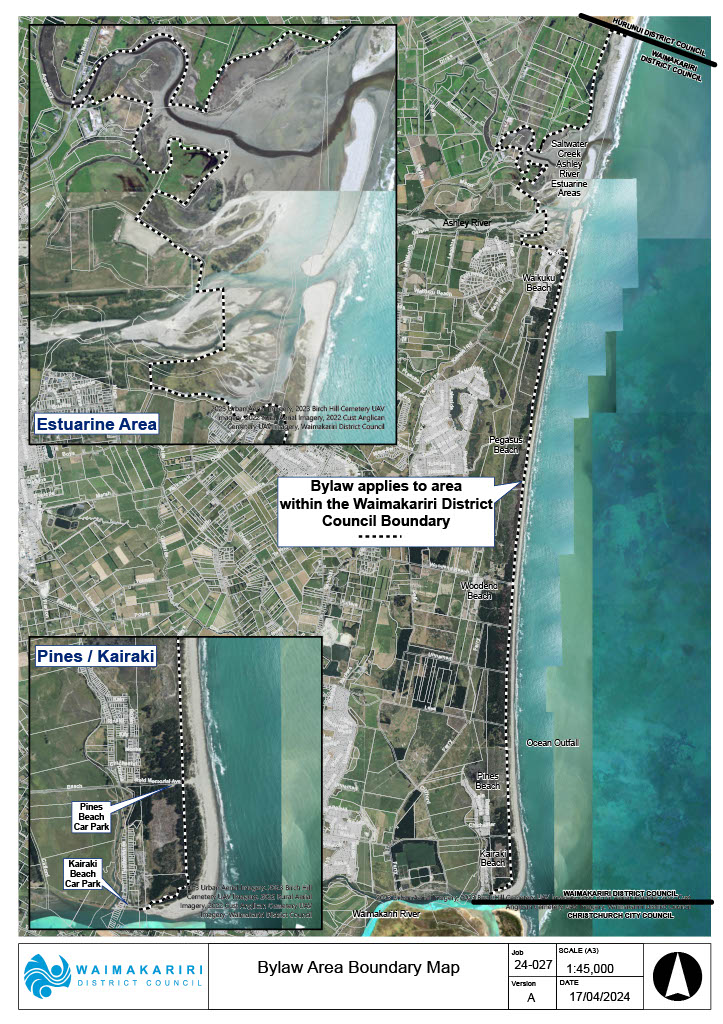
Ashley Rakahuri Rivercare Group operations manager Grant Davey says provisions in a new Waimakariri District Council bylaw will ‘‘do little’’ to protect threatened native birds in the Ashley Rakahuri River and Saltwater Creek estuary.
The council has taken on board the concerns of hunters and reversed a proposal to ban hunting dogs from the Ashley River estuary during duck shooting season.
A new clause allows Fish and Game hunting license holders to use dogs in a reduced area of the estuary during the gamebird hunting season.
The new Northern Pegasus Bay Bylaw was adopted last week and governs what activities are allowed on the district’s beaches.
Another change allows dogs to be on a leash on the seaward facing side of the spit, north of the Waikuku northern car park and south of the Ashley Rakahuri River.
Aircraft will also be allowed to land and take off in the area under a new user agreement to be signed between the council and the Canterbury Recreational Aircraft Club.
All open air fires and fireworks will be banned in the bylaw area.
Mr Davey said he believed the majority of dog owners will not comply with the requirement for dogs to be on a leash.
‘‘We thought by trying to get a dog ban in place and a plane ban, these were things which could be done.
‘‘I know enforcement is not easy and I know the councils don’t have excess funds, but somebody needs to come up with the money.
‘‘I don’t believe the changes are going to be of any use, as the current dog system is routinely flouted.’’
He said Environment Canterbury rangers did a good job in approaching rule breakers, but were not available often enough.
Mr Davey said recreational aircraft regularly flew well below 150 metres, some as low as 20 or 30 metres above the ground and caused disturbance to the birds.
‘‘Recreational vehicle use is not allowed, so how can you land a recreational plane on the beach.’’
He said he had taken numerous photos of birds being disturbed by low-flying planes.
Mr Davey said he was not aware of any issues with hunting dogs.
Fish and Game North Canterbury had earlier expressed frustration at the initial proposal to ban hunting dogs, when the consultation was announced.

‘‘We wrote a submission related to the use of dogs for hunting and went to the hearing.’’
He was aware council staff had recommended changes to align the use of hunting dogs with Environment Canterbury’s hunting area maps.
Councillor Al Blackie chaired the hearing committee and said the issue of dogs on the estuary was always going to be ‘‘controversial’’.
‘‘I’ve already heard from people who said they won’t comply with it.
‘‘It is probably an another generational thing. It will probably take 10 years for it to sink in.’’
Cr Blackie said the aircraft clause had attracted little reaction ‘‘as they manage themselves’’.
‘‘The only concern was with the landing and staff are working on a user agreement.’’
The estuary is home to threatened bird species including wrybills, black-bill gulls, banded dotterels, black-fronted terns and pied oystercatchers, some of which are endangered.
By David Hill, Local Democracy Reporter
■ LDR is local body journalism co-funded by RNZ and NZ On Air.













